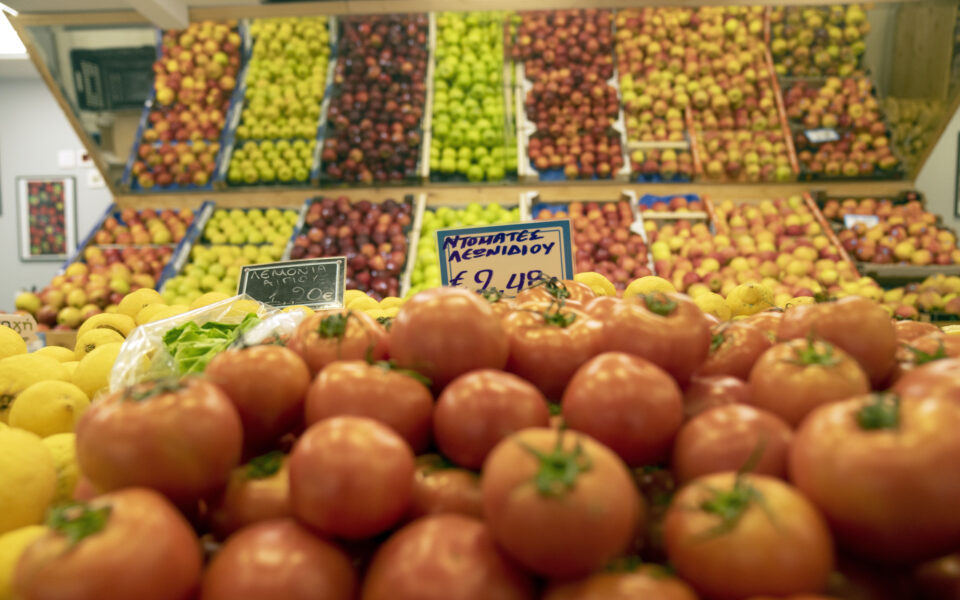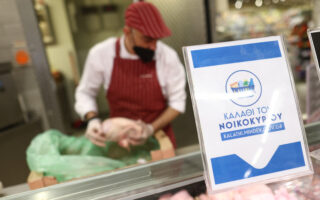Inflation falls to 3.4% in August
Despite decline, expected price hikes in foodstuffs and possibly energy worry officials

Greece’s Harmonized Index of Consumer Prices (HICP) dropped slightly in July, from 3.5% to 3.4%, preliminary data from the European Union’s statistics agency Eurostat showed Thursday.
Greece’s HICP may be lower than the eurozone average, which remained unchanged at 5.3%, but the news is far from reassuring. Foodstuffs, whose prices outpace the overall inflation and which have risen more steeply in Greece than other eurozone countries, are expected to keep rising. And it is quite likely that energy prices will rise too, as the war in Ukraine will not be over anytime soon.
Preliminary domestic Consumer Price Index data for August, which differ from the HICP, will be announced by Greece’s statistics authority ELSTAT on September 8.
Greece’s August HICP was the third lowest in the eurozone, alongside Finland and the Netherlands. Spain, with the lowest inflation at 2.4%, has temporarily eliminated value-added tax (VAT) in some food staples and cut it in others.
On a monthly basis, prices in Greece declined 0.2% from July, because some foods were cheaper and, especially, because summer sales were in effect for the whole of August.
In energy, Greece had the third-best performance in the EU, with prices 17.3% lower than 2022, thanks to cheaper natural gas and electricity. But in the past few days prices have been rising, as well as those of gasoline, which in many localities costs more than €2 per liter.
In the coming weeks, we can expect significant price hikes in olive oil, whose price may exceed €10 per liter, meat, feta and other cheeses made mainly from goat and sheep milk. Pasta and bread, whose prices had declined in recent months, are also expected to become more expensive.
Food prices are worrying the whole of the eurozone, where the relevant sub-index rose 9.8% in August, although it was lower in July. Inflation also slowed down in non-energy industrial products (4.8% from 5%) and services (5.5% from 5.6%).
Slovakia had the highest inflation in the eurozone (9.6%), followed by Croatia (8.5%) and Austria (7.6%). Germany is at 6.4%, while inflation in France rose from 5.1% in July to 5.7%.





